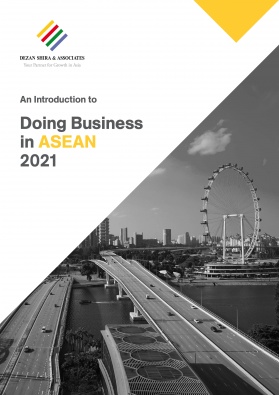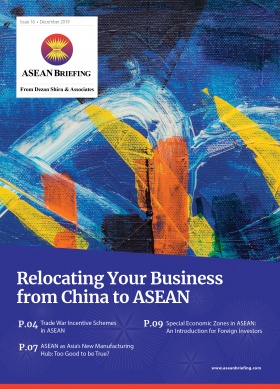Myanmar Coup: Updates and What To Do If You Are In The Country
Op/Ed by Chris Devonshire-Ellis
- Myanmar military coup this morning, Aung San Suu Kyi and 23 others arrested
- Communications functioning in Yangon
- Banks to reopen tomorrow, people told to stay indoors
- Military to hold power for ‘One Year’
Reports from Myanmar today have indicated that a military coup has been underway and that President Win Myint together with the nation’s elected leader, Aung San Suu Kyi, and other high-ranking Government officials, are being held by the military under arrest. Elections held in November are alleged to be been fraudulent, with the military-backed ‘Union Solidarity and Development Party’ winning just 33 seats from the 476 available.
That has apparently been received as an affront to the military, who have claimed that 10 million of the votes cast in November are problematic. Taking the issue to Government has resulted in a recount being rejected, while it has also emerged that no procedures for doing so are within Myanmar’s Constitution. As a result, the Military has taken control of the country for ‘one year’ and declared a state of emergency. The justification appears to be to hold another election, with changes made to the constitution to permit improved oversight, possibly at the year-end.
Phone and mobile internet services are currently down in the capital, Naypyidaw, and military tanks and trucks have been parked outside City Hall. The State-run MRTV television has been off-air, and banks have been closed across the country, although we have been advised they will reopen tomorrow (Tuesday). There is mobile phone and internet coverage, although it may be erratic, in Yangon and elsewhere, we have held WhatsApp calls with personnel in Myanmar today.
The coup appears to have been partially in response to a collective Joint Statement made by Diplomatic Missions in Myanmar, issued last week by the Diplomatic Missions of Australia; Canada; the Delegation of the EU and European Union Member States with presence in Myanmar: Denmark, Czech Republic, Finland, France, Germany, Italy, Netherlands, Spain and Sweden; as well as Switzerland, the United Kingdom, the United States, Norway, and New Zealand. Local views are that this appears to have seriously upset the Myanmar military and lead to feelings the Embassies statements undermined the military authority in the country to ensure free and fair elections take place.
The statement read:
“We affirm our support for Myanmar’s democratic transition and efforts to promote peace, human rights, and development in the country. We look forward to the peaceful convening of the Parliament on February 1 and the election of the President and speakers. Once again, we congratulate the people of Myanmar on their historic participation in the country’s recent general election. We urge the military, and all other parties in the country, to adhere to democratic norms, and we oppose any attempt to alter the outcome of the elections or impede Myanmar’s democratic transition. We support all those who work toward greater democratic freedoms, lasting peace, and inclusive prosperity for the people of Myanmar.”
That was issued following the Myanmar elected Government’s decision not to recount votes after allegations of voting fraud, and the subsequent discovery no procedure to authorize a recount existed in Myanmar’s Constitution. The Myanmar military has subsequently issued the following statement:

The Military TV Station Myawaddy has reported that power has been handed to commander-in-chief General Min Aung Hlaing.
Who Is General Min Aung Hlaing?
Aged 64, he was educated in law at the Rangoon Arts and Science University before joining the Army in 1974. He assumed the post of Commander of Chief of the armed forces on 30 March 2011. He is also a member of the National Defense and Security Council (NDSC) chaired by the President of Myanmar. On 5 November 2020, following the most recent elections, the Myanmar Government declared that his rank is equivalent to Vice-President of Myanmar. He has evidently achieved self-promotion.
The coup implications
Western and Governments media has itself in knots about the coup as up until now, they have lambasted Myanmar’s elected leader, Aung San Suu Kyi for ethnic cleansing and human rights violations against the Rohingya population in Western Myanmar and the Hill Tribes in Northern Myanmar’s Kachin State. Now they are calling for her release. Myanmar has been failing to control armed insurgencies in several areas of the country, with Muslim rebels seeking to create their own States in what is a majority Buddhist nation. Aung San Suu Kyi, while popular, has been in power for a decade now and has not been able to adequately resolve the issue.
Myanmar has long borders with China, India, and Thailand, and smaller ones with Bangladesh and Laos. None of these countries will want to see refugees flooding into their territories or have an ongoing requirement to militarize the borders long term, with Bangkok, Beijing, and Delhi all certain to want the situation to stabilize quickly. That implies they will probably get their wish.
The real question revolves around General Min and whether he really intends to restore democracy in 12 months’ time. That gives the military a year to deal with Muslim insurgents and to stabilize the country. It is also likely to lead to a consolidation of his business interests in Myanmar. Key to American and other foreign investors here is how far the United States is prepared to go with imposing sanctions on Myanmar and how far the rest of the ASEAN bloc is prepared to follow.
The upside could be that General Min allows a return to a democracy albeit one in which the military, not unlike the situation in Thailand, retains an active, supervisory role.
Alternatively, the Military could remain in power for many years, although I suspect this will not be the case due to the intense strains it will place on Myanmar’s membership of ASEAN and trade relations elsewhere. I envisage a one year period of military rule, during which there is likely to be intense Muslim suppression and an enforced Military clean-up of a country that is currently awash with weapons, followed by elections under military supervision. Either way, foreign investment in Myanmar’s Food and Drugs industry is probably best left to one side given pending US sanctions.
What to do if you are in Myanmar
If you’re reading this, then that in itself is good news as it means internet services have been restored, are available or you are able to access a VPN. The main issue is to tune into the Myawaddy TV and radio services for updates on the situation until MRTV is broadcasting again. Lie low and do not attempt to go outside until the situation has calmed down. Assess what food and drinks you have, and start to ration them, you may need enough to last 2-3 days before shops are able to reopen. The Military will be aware that the population needs to eat. If you are in a Muslim area, it is probably best to start planning to evacuate.
When you are able, try and get simple messages to your family, and friends to let them know you are OK. Try not to make precise arrangements for call times as delays may occur and this invites worry. Foreigners can invite suspicion, carry a copy of your passport, visa or ID card together with contact details of your Embassy. Journalists have been jailed, hide any press credentials.
If you are employed or have employees in Myanmar, try to contact them when you are able to ensure they are all safe and establish where they are. It is wise to suspend all your business operations for the week while the situation unfolds. The Burmese Military is well-armed and efficient, some semblance of order is likely to resume by the weekend. Stay away from protests or crowded areas; this invites trouble.
Stock up on essential supplies, stay quiet and low key, and reassess the situation on Saturday. If the situation shows signs of deteriorating further with serious armed clashes it may then be time to start considering evacuation. If so, we will provide updates on exiting Myanmar according to local conditions, however, we view this as an unlikely scenario.
If you have a business in Myanmar
The first responsibility is to your staff, try and make contact with them to establish their well-being and where they are. Close your place of business until the weekend and then reassess the situation. We will also provide updates.
Banks in Myanmar are closed at present, do not attempt to wire funds. Apparently, this is linked to the internet in Naypyidaw being down and can be expected to resume once the military has gained full control. Getting money into the country may prove chaotic for the coming week. We will provide further advice on dealing with Myanmar funding should the situation be prolonged. It is not in the military’s interests to cut off the money supply long term.
If supply contracts are in place, examine clauses related to force majeure and assess the potential for insurance claims and related policies. Your business can be expected to operate for some weeks under erratic conditions, so reassess your business plans downwards for the first half-year.
We will revisit this subject as necessary.
Chris Devonshire-Ellis is the Chairman of Dezan Shira & Associates and has had a 35-year career in Asia. During this time, he has experienced the Tiananmen Incident, the Mumbai bombings, Civil war in Sri Lanka and riots in Shanghai and Hong Kong. His firm, which assists foreign investors into Asia were one of the first to provide business advisories concerning managing the Covid-19 outbreak in China.
Related Reading
- Myanmar Opens Stock Market to Foreign Investors
About Us
ASEAN Briefing is produced by Dezan Shira & Associates. The firm assists foreign investors throughout Asia and maintains offices throughout ASEAN, including in Singapore, Hanoi, Ho Chi Minh City and Jakarta. Please contact us at asia@dezshira.com or visit our website at www.dezshira.com.
- Previous Article Turkey to Forge Closer Ties with ASEAN and Asia
- Next Article ASEAN-China FTA Amendments to Ease Market Access








